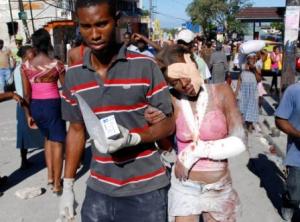Two nights ago I saw my son–twice! I saw him afresh again yesterday! But how is that possible considering he died on September 24, 2006 in a car accident?
The sightings two nights ago happened in dreams. But they weren’t just ordinary dreams. They were vivid, and I had a clear knowledge of Jacob’s death. When I saw him, I knew it was very special and I had to take in every little detail of his face, hair and body. In one of the dreams he was the same age he was when he died–18. He was sitting on a couch wearing his classic khaki shorts and tennis shoes. I remember looking at one of his legs draped across a couch and loving that it was HIS leg. In the other dream, Jacob was a baby. In fact, he was still in a highchair and I was feeding him. Again, I remember taking in the little details of his face and cherishing them. When I woke up, I was thrilled!
If you’ve never lost a child, you might not be able to appreciate the value of a vivid dream. For those of us who have, these dreams serve as a connection with our child once again. We literally wake up from these dreams knowing that we have been with our child for a time, and it is wonderful. It is painful too, because the dream had to end. These dreams give us hope and strength to keep pressing on through the grief.
I’ve had regular old dreams where images are just brief flashes and the flow of the dream is disjointed and makes little to no sense. Jacob has been in some of those dreams as well, but they are entirely different. In those dreams, I have no knowledge of his death. I just see brief images of him, and there is no sense of wonder about being able to see him. I wake up from those dreams feeling confused, not elated.
As I walk along this journey of grief, I dream of the time when I get to be with Jacob again, forever. I dream of our family of four being together again in eternity. Those dreams give me hope to make it through another day, week, month and year. Dreams are important to keep us going.
There is a passage in Scripture that says, “Where there is no vision, people perish.” Proverbs 29:18 The word vision can easily be replaced with the word “dream” and the meaning will not change. Where there is no dream(s), people perish.
By the way, the same night I had the two dreams about Jacob, my friend who lost her daughter (who happened to be a classmate of Jacob’s) also had two dreams of her daughter–one where she was the age at the time of her death and one of her as a little girl. We laughed and wondered if those kids were up to something again with both of them showing up in two of our dreams on the same night at roughly the same ages.
One of my ongoing dreams is that over time, more pictures, stories and videos of Jacob will emerge that will bless and comfort me and my family. A little piece of that dream came true just yesterday. Someone sent via email a picture of Jacob I had never seen. It was a beautiful picture of him. He was front and center, smiling and looking straight into the camera. A mother’s dream come true! Although I would have been happy even if he had only been in the background, I got to see Jacob’s face up close with a big smile, looking straight into the camera. Seeing that picture was like getting a glimpse of him once again on this earth.
A few weeks before that, one of Jacob’s friends showed me his cell phone. He had a video of Jacob skimboarding. We have no videos of Jacob as an older teenager, but there I was looking at a video of my son taken the summer before he left for college.
As we each pass through life, it is important to have dreams, visions, goals. They keep us moving forward. Jacob understood that in his short life. He had huge dreams. At times they seemed almost too big to attain, but he held on to those dreams and never allowed anyone to talk him out of them. His enthusiasm for life was contagious and many of us wanted to learn how to dream like he did.
Those dreams helped Jacob to live his life fully. So full, in fact, that he had on his cell phone, “The Glass Is Full.” He hadn’t attained all those big dreams of his, but he still knew his life was full…his glass was full.
Never lose sight of your dreams.




